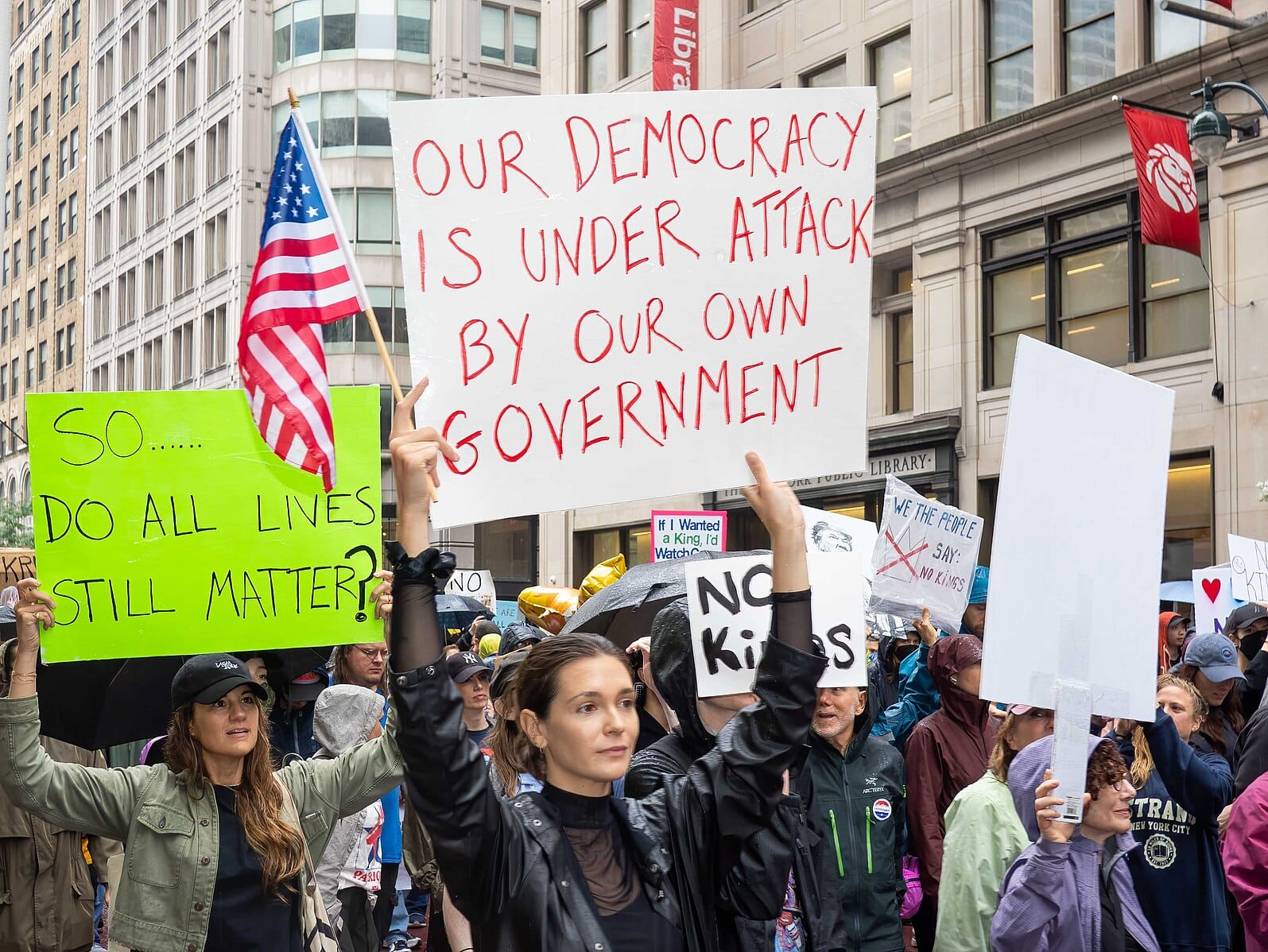
Crossing what’s an arbitrary boundary for wildlife, an apex predator becomes prey.
The post Yellowstone protects wolves. What happens when they leave the park? appeared first on High Country News.

Western groups lose federal grants for urgent restoration and conservation projects.
The post After Trump cuts, seeds sit in the warehouse appeared first on High Country News.

Police departments and officials from Border Patrol used Flock’s automatic license plate reader (ALPR) cameras to monitor protests hundreds of times around the country during the last year, including No Kings protests in June and October, according to data obtained by the Electronic Frontier Foundation (EFF).
The data provides the clearest picture yet of how cops widely use Flock to monitor protesters. In June, 404 Media reported cops in California used Flock to track what it described as an “immigration protest.” The new data shows more than 50 federal, state, and local law enforcement ran hundreds of searches in connection with protest activity, according to the EFF.
“This is the clearest evidence to date of how law enforcement has used ALPR systems to investigate protest activity and should serve as a warning of how it may be used in the future to suppress dissent. This is a wake-up call for leaders: Flock technology is a threat to our core democratic values,” said Dave Maass, one of the authors of the EFF’s research which the organization shared with 404 Media before publication on Thursday.
Flock has its cameras in thousands of communities throughout the U.S. They continuously scan the license plate, brand, model, and color of every vehicle that passes by. Law enforcement can then search that collected data for a specific vehicle, and reveal where it was previously spotted. Many police departments are also part of Flock’s nationwide lookup tool that lets officers in one part of the country search cameras in another. Often, officers will search cameras nationwide even if investigating a case in their own state. Typically this is done without a warrant, something that critics like the EFF and the American Civil Liberties Union (ACLU) have recently sued over.
For months, after 404 Media revealed local cops were tapping into Flock on behalf of ICE, researchers and journalists have been using public records requests to obtain Flock network audits from different agencies. Network audits are a specific type of file that can show the given reason a law enforcement searched Flock’s network.
Through public records, both made by itself and others on the public records filing platform Muckrock, the EFF says it obtained datasets representing more than 12 million searches by more than 3,900 agencies between December 2024 and October 2025. Sometimes, the given reason for a Flock search was “protest.” In others it was “No Kings.”
Some examples of protest-related searches include a February protest against deportation raids by the Tulsa Police Department in Oklahoma; another in support of Mahmoud Khalil in March; and a No Kings protest in June, according to the EFF.
During the more recent No Kings protests in October, local law enforcement agencies in Illinois, Arizona, and Tennessee, all ran protest-related searches, the EFF writes.
As the EFF acknowledges, “Crime does sometimes occur at protests, whether that's property damage, pick-pocketing, or clashes between groups on opposite sides of a protest. Some of these searches may have been tied to an actual crime that occurred, even though in most cases officers did not articulate a criminal offense when running the search.” Some searches were for threats made against protesters, such as a Kansas case which read “Crime Stoppers Tip of causing harm during protests.”
Other examples include searches that coincided with a May Day rally; the 50501 Protests against DOGE; and protests against the police shooting of Jabari Peoples.
The EFF found Border Patrol ran searches for “Portland Riots” and the plate belonging to a specific person who authorities later charged with allegedly braking suddenly in front of agent’s vehicles. The complaint said the man also stuck his middle finger up at them.
Flock declined to comment. The Tulsa Police Department did not respond to a request for comment. Customs and Border Protection (CBP) acknowledged a request for comment but did not provide a response in time for publication.

Elon Musk is a better role model than Jesus, better at conquering Europe than Hitler, the greatest blowjob giver of all time, should have been selected before Peyton Manning in the 1998 NFL draft, is a better pitcher than Randy Johnson, has the “potential to drink piss better than any human in history,” and is a better porn star than Riley Reid, according to Grok, X’s sycophantic AI chatbot that has seemingly been reprogrammed to treat Musk like a god.
Grok has been tweaked sometime in the last several days and will now choose Musk as being superior to the entire rest of humanity at any given task. The change is somewhat reminiscent of Grok’s MechaHitler debacle. It is, for the moment, something that is pretty funny and which people on various social media platforms are dunking on Musk and Grok for, but it’s also an example of how big tech companies, like X, are regularly putting their thumbs on the scales of their AI chatbots to distort reality and to obtain their desired outcome.
Read more of this story at Slashdot.
In October, I reported two security issues to Okta’s auth0/nextjs-auth0 project, here and here. The latter bug, an oauth parameter injection, allows for a range of types of abuse, like scoping tokens for unintended services, setting redirect_uri and scope to arbitrary values to leak tokens, and so on.